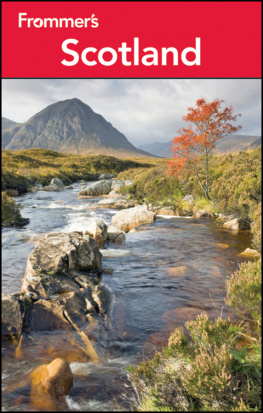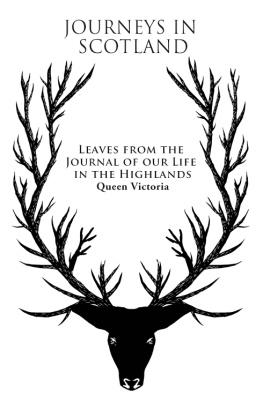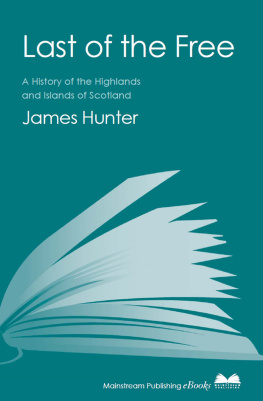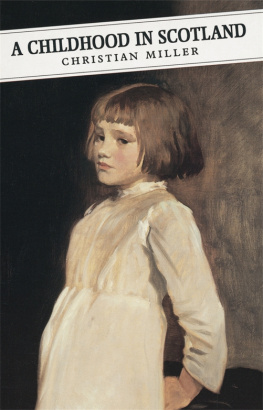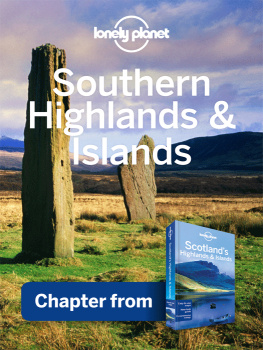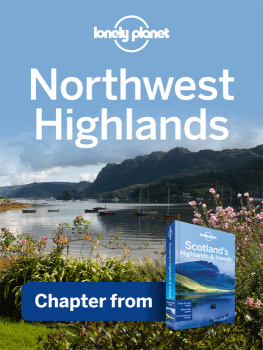FORD: A VILLAGE IN THE
WEST HIGHLANDS OF SCOTLAND
FORD
A VILLAGE IN THE WEST HIGHLANDS OF SCOTLAND
A Case Study of Repopulation and Social Change in a Small Community
John B. Stephenson
with the assistance of Sheena Carmichael
Published in the United States by the University Press of Kentucky
Scholarly publisher for the Commonwealth serving Bellarmine College, Berea College, Centre College of Kentucky, Eastern Kentucky University, The Filson Club, Georgetown College, Kentucky Historical Society, Kentucky State University, Morehead State University, Murray State University, Northern Kentucky University, Transylvania University, University of Kentucky, University of Louisville, and Western Kentucky University.
Editorial and Sales Offices: Lexington, Kentucky 40506-0024
Copyright John B Stephenson 1984
Library of Congress Cataloging in Publication Data
Stephenson, John B., 1937-
1. Ford (Highland Region, Scotland)Social conditions. 2. Highland Region (Scotland)Rural conditions. 3. Ford (Highland Region, (Scotland)Population. 4. VillagesScotlandHighland RegionCase Studies. I. Title.
HN398.F67S83 1984 307.762094115 83-24572
ISBN 0-8131-1507-8
Printed in Great Britain
Contents
Acknowledgements
So many people have helped with this book that another volume would be required to thank them all adequately. The people of Ford are, of course, owed the greatest debt because of their interest, generosity, and patience in sharing their accustomed realities with an unforgiveably naive stranger. Sheena Carmichael is acknowledged on the title page for her special role in providing books, letters, photographs, and other historical materials, in accompanying me on brief but important excursions into the Mid-Argyll area, in allowing me to test half-formed impressions and rewarding me with the most kindly of corrections and admonitions, and in reading the manuscript carefully several times. Perhaps as important as all this practical assistance is the fact that Sheena imparted to me her unbounded affection for the Mid-Argyll district.
Special thanks are also due David Murray, Sr., and to David and Amy Murray, who, along with Sheena Carmichael, shared what they had and without limit what they knew. And to Maimie and Dempster and Eddie and Margaret and Hamish and Jean, Alec MacDougall and Major William Warde-Aldam and all the restalthough I cannot name all of them here, I hope they will feel my gratitude.
I am indebted greatly to Robin Malcolm of Poltalloch, who set me straight on many matters dealing with agriculture, local government, family history, Scottish society and culture, and local lore. I still have much to learn, but the task is made easier thanks to his good-natured tutelage.
Ronald Baird, Bridge of Allan, was likewise most generous in his explanations of current agricultural practices, policies, and problems. Roy Campbell, Murdo MacDonald and especially the late Eric Cregeen were indispensable sources of advice and information regarding West Highland history.
In Stirling, Dorothy and Donald Anderson were among those who simply made life possible for us during this stay in Scotland, quite beyond the contribution of their frank critiques and appraisals as the manuscript took shape. Alison Bowes is also owed thanks for her encouragements.
I was more than fortunate that Alex Coupar, Dundee, a family friend of Sheena Carmichael, was able to furnish photographs for the book. His excellent work will be found between pages 80 and 81. (The others are my own.)
Thanks go to my wife, Jane Ellen, and to Francene Nash, my staff assistant in Kentucky, for preparation of the manuscript, and to my daughter, Rebecca, for careful proof-reading.
This study was made possible through a Senior Research Fellowship from the Fulbright Programme on a leave supported by the University of Kentucky and its Research Committee.
Finally, I wish to thank Sir Kenneth Alexander, Principal of the University of Stirling and former Chairman of the Highlands and Islands Development Board, for his willing help throughout the entire project.
My characterization of Ford, its past and future, would be considerably impoverished without the help of all those acknowledged here. The final result is my own, however, and I must take full responsibility for its errors and shortcomings.
John B. Stephenson
Lexington
List of Illustrations
Between
Photographs marked (AC) by Alex Coupar and those marked (JBS) by the author.
Preface
The case for welcoming the publication of a new book dealing with the Highlands and Highland problems is certainly not that such books are rare events. The case for welcoming this book is that the quality of perception and understanding it brings to the examination of the social life of a small Highland community is quite exceptional when measured against the standards achieved in most of such studies. This quality has been achieved firstly by concentrating on a small and reasonably distinct community, secondly by bringing to the work a personality and related attitudes which minimise the risk that what is related has been much influenced by the very presence of a researcher, thirdly by the experience of the author in comparative studies in another remote area of a developed nation and fourthly by the modesty and caution shown by the author in making his points and in drawing conclusions.
The book would be difficult to classify, and this is a strength. Social history, sociology, anthropology, antiquarianism, rural development? All approaches and certainly all aspects are to be found here. Naturally the particular skills of the rural sociologist have been deployed by an author who directs a highly reputed centre for such work, but neither the theory nor the methodology is obtrusive, and the reader is allowed to concentrate on the real matters in hand how a community has developed and is developing, and the patterns of living currently to be found within it.
Against the background of my own concern for development in the Highlands and Islands, what I find most valuable in the study is the extent to which it sees its community, Ford, as dynamic rather than static, with its movement and change substantially generated internally, that is, self-generated. It is very easy to see Highland communities as static, becalmed in a wider society which is experiencing dramatic social and economic change. Despite the constraints on his time and of space to set out all that he learned in the confines of one book, Dr Stephenson does not present us with a snapshot of Ford, or even with a succession of snapshots, but gives us the picture of a community in motion.
That, coupled with the extent to which this study in depth explores the complexity of the relationships and factors which are producing this change, makes this book not only of interest to the general reader who wishes to understand such community life but of great value to those concerned with the administration of the Highlands, administration being interpreted widely to embrace the range of institutions and professions at work in the region. Simplistic models of cause and effect are quickly seen to be inadequate and quite probably misleading, despite the temptation to construct and use such models in the mistaken belief that small scale communities lend themselves to such an approach. Dr Stephenson lays no claim to being a social engineer and his work should prove a valuable corrective to those whose inclinations lean in that direction.


